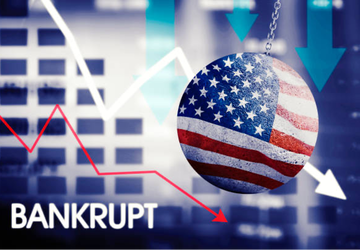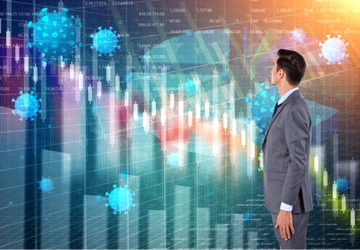The Impact of Political Events on Stock Prices
Political occurrences exert a profound influence on financial markets. Comprehending how these events affect stock prices is paramount for investors. This article delves into the intricate nexus between political events and stock market, elucidating how political machinations and occurrences shape stock prices and market trends.
Political occurrences exert a profound influence on financial markets. Comprehending how these events affect stock prices is paramount for investors. This article delves into the intricate nexus between political events and stock market, elucidating how political machinations and occurrences shape stock prices and market trends.
How Political Events Influence the Stock Market
Government Policies
Government policies, encompassing fiscal policies, regulations, and legislative actions, significantly impinge upon the political events and stock market. For instance, modifications in tax policies or new regulations can affect corporate profits and investor sentiment, precipitating oscillations in stock prices.
Elections and Political Uncertainty

Elections are monumental political events that affect stocks. The ambivalence during election periods often engenders market volatility. Investors tend to be circumspect, resulting in reduced trading volumes and sporadically abrupt changes in stock prices. Post-election, the market reacts based on the perceived repercussions of the new government’s policies on the economy.
International Relations
Geopolitical occurrences and international relations play a pivotal role in shaping the stock prices and political news. Trade accords, tariffs, and diplomatic skirmishes can lead to substantial market perturbations. For example, escalating tensions between major economies can precipitate market downturns, while auspicious diplomatic resolutions can bolster investor confidence and stock prices.
Policy Announcements
Announcements pertinent to monetary policies, such as interest rate alterations by central banks, are seminal political events that affect stocks. Such decisions can modulate investor comportment and market trends. For instance, an interest rate hike typically results in augmented borrowing costs, which can curtail consumer spending and business investments, affecting stock prices.
Case Studies
The Brexit Referendum
The Brexit referendum is an archetypal illustration of how political events and the stock market interact. The ambiguity surrounding the UK's decision to secede from the EU engendered significant market volatility. The stock market experienced precipitous declines following the referendum, mirroring investor trepidations about the economic ramifications of Brexit.
U.S.-China Trade War
This war exemplifies the influence of international political events on stock prices. The imposition of tariffs and ensuing trade negotiations between the two largest economies led to market fluctuations, with stocks often reacting to the latest political news and stock prices developments.
Strategies for Investors

Diversification
To mitigate risks associated with political events and stock market, investors should diversify their portfolios. By dispersing investments across disparate sectors and geographies, investors can attenuate the impact of political vicissitudes on their overall portfolio performance.
Staying Informed
Remaining abreast of how politics affect stocks is crucial. Investors should assiduously follow political news and analysis to anticipate potential market reactions. Subscribing to erudite financial news sources and analysis can provide valuable insights into the connection between political events and stock market trends.
Long-term Perspective
Adopting a long-term investment perspective can help investors navigate the volatility engendered by political events and stock market fluctuations. While political events may precipitate short-term disruptions, focusing on the long-term fundamentals of investments can lead to more stable returns.
Market Sentiment and Political Turbulence
Investor Psychology
The psychology of investors is profoundly impacted by political events and stock market turbulence. Fear, uncertainty, and trepidation (FUD) often catalyze panic selling or precipitate impulsive acquisitions, driven by emotional responses rather than rational analysis. Understanding how politics affect stocks can help mitigate irrational decisions induced by market sentiment.
Media Influence
Media coverage exacerbates the effect of stock prices and political news. Sensationalist reportage on political developments can exacerbate market reactions, leading to hyperbolic fluctuations in stock prices. Investors must discern the substantive impact of news from mere conjecture to navigate the political events and stock market effectively.
Social Media Dynamics
In the digital age, social media platforms have become pivotal in shaping perceptions of political events that affect stocks. Viral news and tweets from influential figures can precipitate immediate market reactions, emphasizing the need for investors to stay vigilant about stock prices and political news circulating on these platforms.
Economic Policies and Market Dynamics
Fiscal Stimulus Packages
Fiscal stimulus packages, often promulgated during economic downturns or crises, are critical political events that affect stocks. These packages can buoy market confidence, leading to a surge in stock prices. Conversely, the absence or inadequacy of such measures can precipitate market declines.
Trade Policies
Trade policies, including tariffs and trade agreements, are significant political events that affect stocks. Protectionist policies can negatively impact industries reliant on global supply chains, while free trade agreements can stimulate market optimism and drive up stock prices.
Currency Fluctuations
Currency exchange rates are influenced by political events and stock market interactions. Understanding how politics affect stocks through currency fluctuations is vital for investors with international exposure.
Regulatory Changes and Market Reactions
Environmental Regulations
Environmental regulations, such as emissions standards and sustainability mandates, are impactful political events that affect stocks. Companies in industries like energy and manufacturing may face increased costs, affecting their stock prices. Investors must evaluate the long-term implications of such regulations on political events and stock market dynamics.
Financial Sector Regulations
Regulations in the financial sector, including banking reforms and compliance requirements, are pivotal political events that affect stocks. Stricter regulations can constrain profitability, while deregulation can enhance market opportunities. Staying informed about these political events and stock market implications is essential for investors in financial stocks.
Labor Laws
Changes in labor laws, such as minimum wage adjustments and worker protections, are critical political events that affect stocks. These regulations can impact operational costs and productivity, influencing stock prices. Investors must consider how such political events and stock market dynamics affect their portfolios.
Risk Management in Politically Volatile Markets
Hedging Strategies
Implementing hedging strategies, such as options and futures, can mitigate the risks associated with political events and stock market volatility. These financial instruments provide a safety net against adverse market movements driven by political events that affect stocks.
Safe-Haven Investments
Investing in safe-haven assets like gold, bonds, and certain currencies can protect portfolios during politically turbulent times. Understanding how politics affect stocks helps investors identify when to shift towards these assets.
Scenario Analysis
Conducting scenario analysis allows investors to anticipate the impact of various political events and stock market outcomes. By simulating different political developments, investors can prepare for potential market reactions and adjust their strategies accordingly.
Conclusion
The nexus between political events and the stock market is intricate and multifaceted. By understanding how politics affect stocks, investors can make more sagacious decisions and better manage risks. Staying informed about stock prices and political news, diversifying portfolios, and maintaining a long-term perspective are essential strategies for navigating the impact of political events on stock prices.